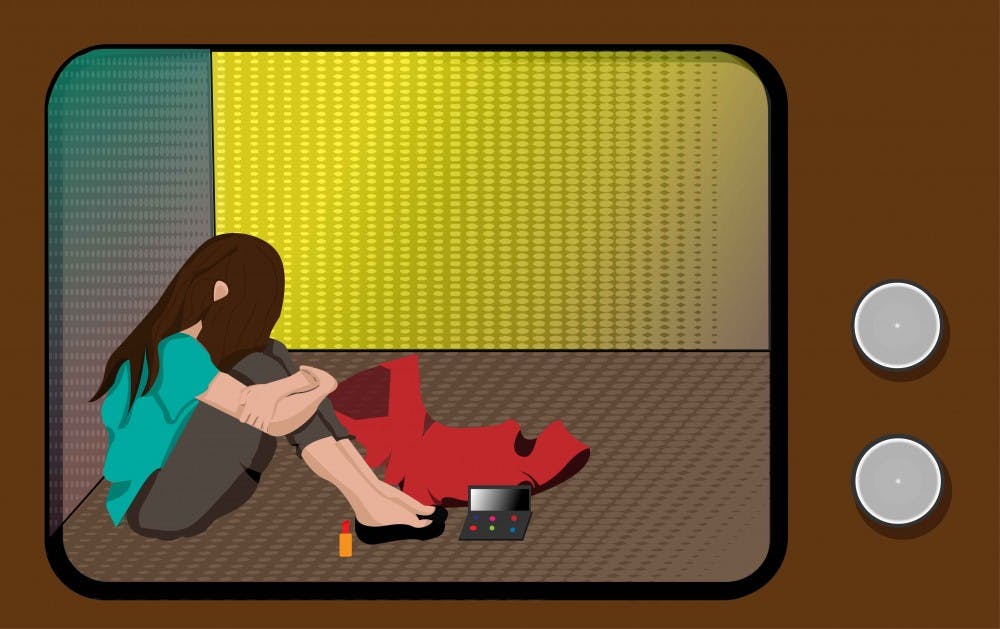Pop culture and its consumers play a role in perpetuating sex trafficking, according to experts.
ASU's College of Nursing and Health Innovation offers a course that provides insight on these factors and perspective into the local and national issue of human trafficking.
The course Fundamentals of Human Trafficking is instructed by Samantha Calvin and offers students an in-depth look sex-trafficking, including how pop culture plays a role in the perpetuation of sex-trafficking and the power that consumers have to help control it.
Over the last 10 years, the frequency of reported human trafficking cases has increased every year, resulting in an 842 percent increase overall and a 13 percent jump in 2017 alone, according to the National Human Trafficking Hotline Polaris.
ASU has a chapter of the national organization AllWalks. The group strives to increase awareness of the prevalence of human-trafficking in the U.S. and abroad.
Sparshee Naik, treasurer of AllWalks at ASU and a junior studying global health and business data analytics, credits AllWalks for her awareness of the prevalence of sex-trafficking.
"I, myself, had several misconceptions, and this club helped me clear those up and realize that it’s a much more commonplace problem than one would think," Naik said.
Often times, people associate human-trafficking with other nations and don't realize that it is also happening in the U.S. in local cities and towns.
"I was tabling for AllWalks at one of the football games, and I handed a flyer to someone and he immediately scoffed at me," Naik said. "He then said 'Human trafficking isn’t a real thing. You’re not fighting for anything' and I was very taken aback and didn't have a chance to respond."
Recently, local concerns about sex-trafficking have increased, as the ASU Police Department warned students about potential sex traffickers at college parties.
At a presentation hosted by AllWalks, Calvin said there is a lot of work to be done in order to combat sex-trafficking, and the easiest thing to start with is to address the demand for sex.
Media industries have capitalized on the demand for sex by including the sexualization of women in their productions, and the tactic has become more common over the years.
A study by the University of Georgia found that 15 percent of studied ads used sex as a selling point in 1983 and increased to 27 percent in 2003.
The Society Pages examined the sexualization of women in "Rolling Stones" magazine covers from 1967 to 2009 and found that in the 2000s, 83 percent of covers featuring a woman were either sexualized or hyper-sexualized.
Additionally, pop music has become notorious for sexism in the industry, both in the coverage of female artists and the lyrics of popular songs.
Calvin analyzed pop songs from the last five years, and her research revealed that the word “bitch” was used 27,401 times, and the word “whore” was used 4,196 times.
Music and magazine industries aren't the only media outlets that have faced criticism for their sexualization of women. TV shows and movies have also been under fire.
"I think that there's a lot of work that needs to be done in terms of how we view men and women," Calvin said. "It's a really tough problem."
Research from a study done by USC Annenberg’s Media, Diversity, & Social Change Initiative and the Harnisch Foundation found that female characters in front of the camera were more likely to wear provocative clothing and appear partially naked than males.
“This really opened up my mind to a lot of the stigma surrounding the sexualization of women in the media,” said Brianna Johnson, the events coordinator for AllWalks at ASU and a junior studying psychology and criminology and criminal justice. “I never realized just how present all of it was. Since most of it is so subtle and embedded within the entertainment industry, we label it as normal.”
Calvin encourages people to speak up when they hear someone saying something vulgar because when people are embarrassed from being called out, they're less likely to say the same thing again.
“We can’t combat the sexualization and subservience of women without starting at the root of the problem,” Johnson said. “We need to be teaching young children that this isn’t acceptable behavior.”
Editor’s note: Due to reporter error, the College of Nursing and Health Innovation was misstated as the College of Nursing and Healthcare Innovation. The article has been reflected to correct this mistake.
Reach the reporter at adunn11@asu.edu or follow @adrienne_dunn on Twitter.
Like The State Press on Facebook and follow @statepress on Twitter.




